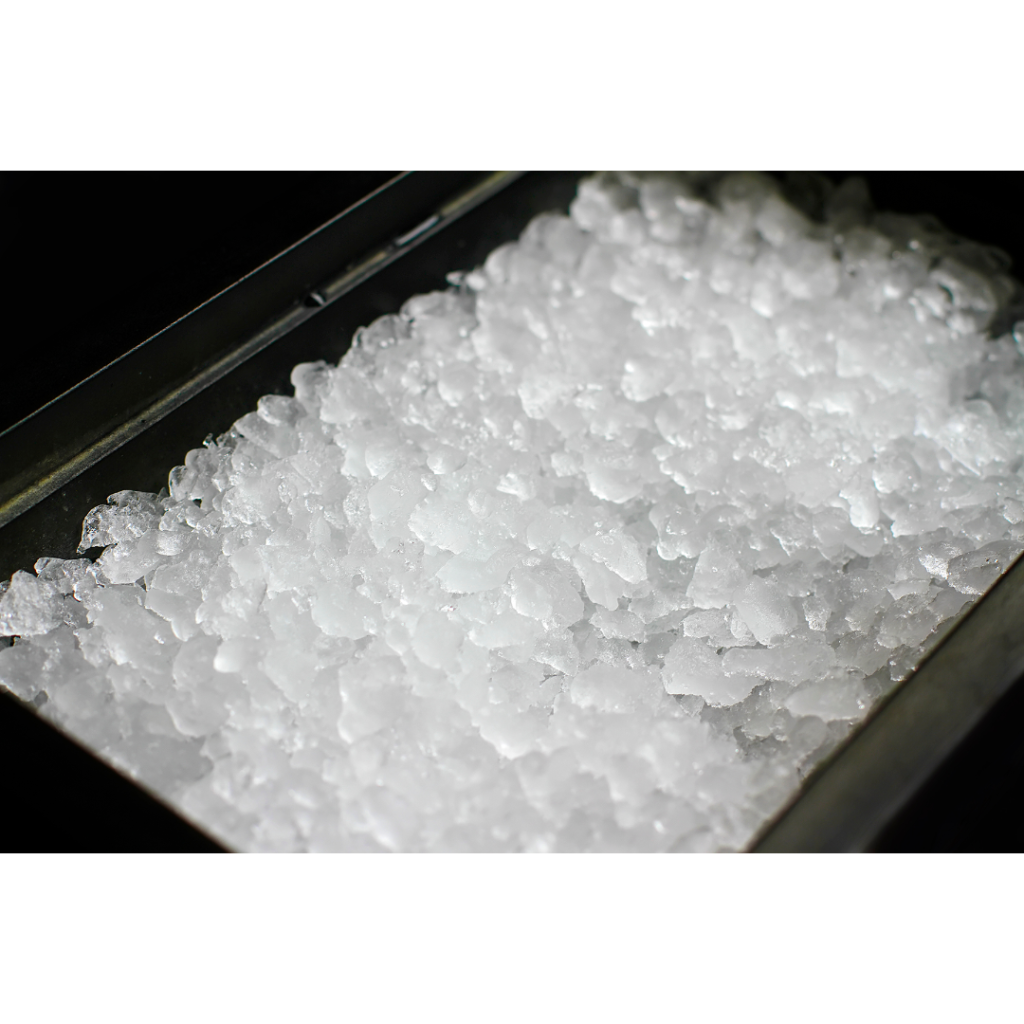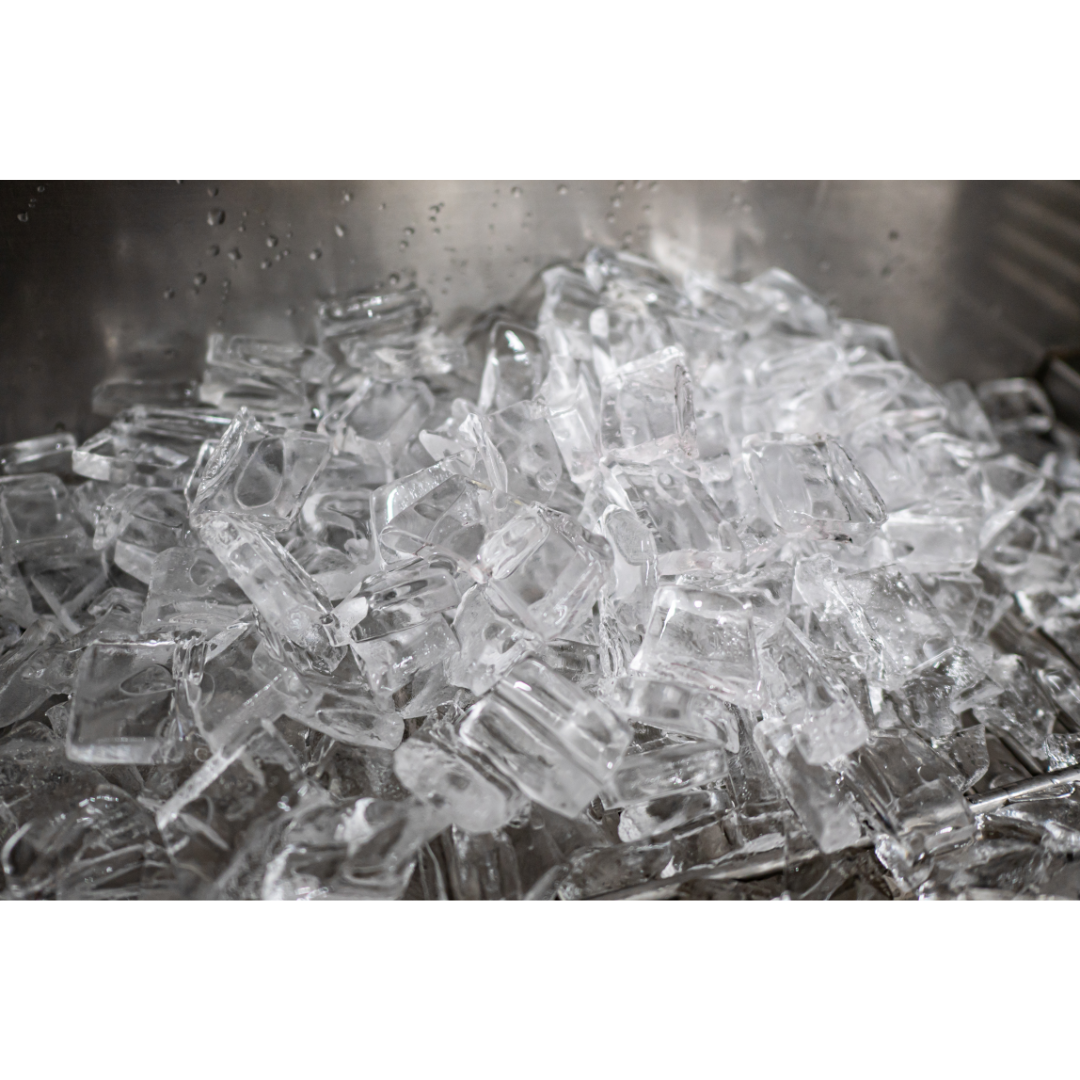Ice chips are essentially small bits of ice, created by either crushing or breaking larger ice cubes or blocks. They’re quite handy and find uses in different scenarios due to their cooling properties and easy-to-handle form. Think of them as tiny, irregularly shaped pieces, smaller than regular ice cubes.
In what situations can ice chips be helpful for health and comfort?
When someone finds it hard to drink water due to certain medical conditions or procedures, ice chips come to the rescue. You can suck on them slowly to stay hydrated without overwhelming yourself.
Ever had a sore throat? Sucking on ice chips can be surprisingly soothing. They help by numbing the throat and reducing inflammation, giving some much-needed relief.
After surgery when drinking fluids immediately isn’t an option, ice chips can be recommended to ease throat irritation and keep dehydration at bay.
Feeling nauseous or dealing with vomiting? Ice chips can offer relief by providing a cooling sensation and calming the stomach.
On hot days or during fevers, ice chips are a go-to for cooling down body temperature and bringing some comfort.
Did you get dental work done or experience a mouth injury? Ice chips can help reduce pain and swelling, making the recovery process a bit more bearable.
Athletes often turn to ice chips after intense workouts to help muscles and joints recover faster by reducing inflammation.
Do not forget their role in drinks! Ice chips make for a cool and decorative addition to cocktails and beverages keeping them chilled without diluting the taste too quickly.
Ice chips are like little multitaskers, offering a simple yet effective solution for various cooling and hydrating needs in everyday life.
Easy steps to make ice chips at home
Making ice chips is a straightforward process. Here’s a simple method

Easy steps to follow :
Fill Ice Cube Trays: Fill clean water into ice cube trays. Fill them to the top but don’t overfill as water expands when freezing.
Freeze: Place the ice cube trays in the freezer. Leave them undisturbed until the water is completely frozen. Depending on your freezer’s temperature, this normally takes a few hours.
Remove Ice Cubes: Once the water has frozen solid take the ice cube trays out of the freezer. Carefully twist or tap the trays to release the ice cubes.
Crush Ice Cubes: Place the ice cubes in a clean towel or a plastic bag. Use a rolling pin meat tenderizer or a hammer to gently crush the ice cubes into smaller pieces. Alternatively, you can use a blender or food processor to crush the ice cubes quickly.
Serve or Store: Once crushed your ice chips are ready to use. Serve them immediately or store them in a resealable bag or airtight container in the freezer until you are ready to use them.
Tips:
- Make sure the ice cubes are completely frozen before attempting to crush them to avoid creating a slushy texture.
- For finer ice chips crush the ice cubes more thoroughly. For larger chips, crush them less.
- Use filtered water for clearer ice cubes and better-tasting ice chips.
- You can add flavoring to your ice chips by freezing flavored liquids or adding extracts or fruit juices before freezing.
- Be careful when using tools to crush ice cubes to avoid damaging yourself.
Enjoy your homemade ice chips!
Benefits of chewing ice chips
Hydration: Chewing ice chips can help increase hydration levels especially if you are not drinking enough water throughout the day. It is a way to consume water without actually drinking it.
Cooling Effect: Ice chips can provide a cooling sensation which may be refreshing particularly in hot weather or during physical activity.
Soothing Sore Throat: Chewing on ice chips can provide relief for a sore throat by numbing the area and reducing inflammation.
Cravings and Appetite Suppression: Some people find that chewing ice chips helps them manage cravings or suppress their appetite, especially if they’re trying to lose weight.
Disadvantages of chewing ice chips
Dental Health: Chewing ice can be harmful to your teeth. It can chip or crack enamel leading to tooth sensitivity and potential dental problems down the line.
Risk of Injury: Biting down on ice can also pose a risk of injury to your teeth and gums. This is especially true if you have dental work like fillings or crowns which may be damaged by the pressure.
Temperature Sensitivity: Chewing ice may exacerbate tooth sensitivity to hot or cold temperatures leading to discomfort.
Potential for Nutritional Deficiency: Relying on ice chips for hydration may not provide the necessary electrolytes and nutrients that you would get from consuming other beverages or foods.
Eating Disorder Risk: Some individuals with eating disorders, such as pica (a condition where people crave and eat non-food items like dust chalk clay), may chew ice compulsively. This behavior can be associated with underlying health issues and should be addressed with professional help.
Keep in mind while chewing ice chips may offer some benefits such as hydration and soothing a sore throat, it is crucial to consider the potential risks, especially to dental health. If you notice excessive cravings for ice it is advisable to seek guidance from a healthcare professional.
Why do hospitals frequently provide ice chips to patients who are thirsty instead of liquids?
For a variety of reasons, when patients are thirsty, hospitals frequently offer them ice chips rather than beverages. First, ice chips can help keep the patient’s mouth moist and provide some relief from thirst without the risk of choking or aspiration which can be a concern for patients who may have difficulty swallowing.
Second ice chips can be easier for the body to handle especially for patients who are recovering from surgery or certain medical procedures. Additionally, ice chips can help control the intake of fluids for patients who may have restrictions on their fluid intake.
It is important to note that the decision to provide ice chips rather than liquids is often made based on the patient’s specific medical condition and the recommendations of the healthcare team.
Advantages of Ice Chips Compared to Ice Cubes:
1) Compared to ice cubes, ice chips freeze faster. (Ice Chips: 40 minutes against Ice Cubes: 4 hours.)
2) When frozen, ice chips use less freezer space than ice cubes.
3. It’s simpler to suck on ice chips than on whole ice cubes.
4. It’s challenging to turn ice cubes into ice chips.
5) The noise produced by turning ice cubes into ice chips increases. Whether it’s a manual cube crusher or an automated ice dispenser.

